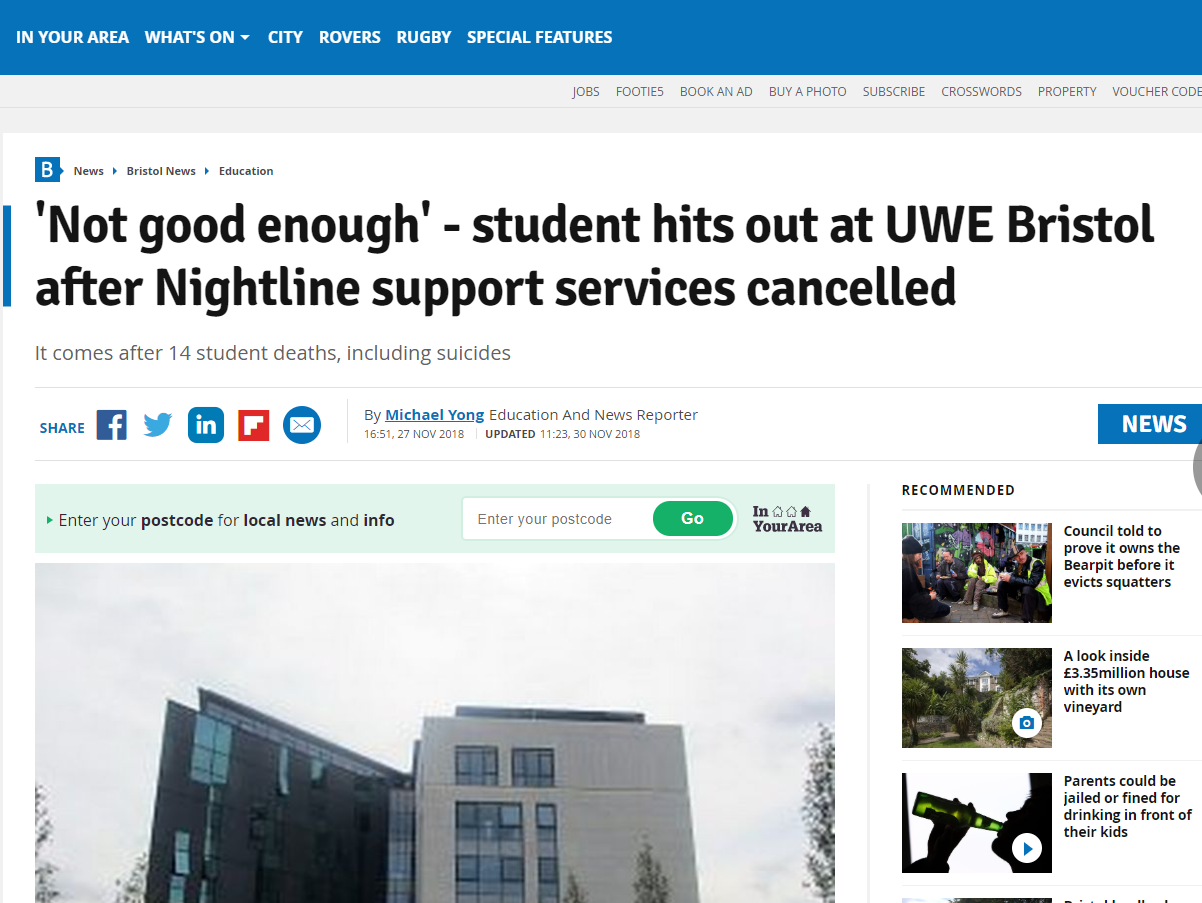
A Bristol Post journalist was acting in the public interest when he logged into a university counselling portal to look into a story on student suicide rates, a press regulator has ruled.
The University of the West of England, based in Bristol, complained to the Independent Press Standards Organisation that the Post had carried out subterfuge in accessing the portal.
The Reach-owned newspaper said a student at UWE Bristol had given the journalist his login details and permission to access the online portal, known as Kooth Student, in researching the article.
A story headlined: “Nightline: UWE ends night-time helpline for struggling students”, ran in print on 28 November last year and on the Bristol Live website online.
It reported that the university had suspended its overnight student support phoneline called Nightline and launched Kooth Student.
The article detailed the journalist’s experience accessing the new platform, saying: “We waited nearly 15 minutes to be connected to Jay, an experienced counsellor. About six minutes after we did not respond, the conversation window was closed and we were asked for feedback on the service.”
According to IPSO, UWE Bristol “expressed concern” that a journalist had tried to use Kooth Student.
It added that there was “no public interest in posing as a student to access the service”, claiming this was a breach of Clause 10 (clandestine devices and subterfuge) of the Editors’ Code of Practice.
The newspaper said the chat was closed as soon as it connected with a counsellor and that its journalist did not claim to be a student, give any false information or take up the valuable time of a counsellor.
IPSO backed the Post, saying the journalist’s misrepresentation was “limited” even though by accessing the portal he had “held himself out as being a student of the university”.
“It involved only a brief interaction with the Kooth service in order to experience it as a student of the University would – the journalist did not engage directly with any of the counsellors,” IPSO said.
“There was a public interest in investigating the support available at the university, given the concerns raised about the number of suicides among its student population.”
IPSO’s Complaints committee said the newspaper’s actions in obtaining and publishing information via this method “had been proportionate to this clear public interest”.
However IPSO did rule that the Post had breached Clause 1 (accuracy) in another article on the subject published five days earlier, headlined: “UWE denies withholding records of suicides from concerned students.”
The article cast doubt on the accuracy of the university’s response to a Freedom of Information request submitted by students about the number of confirmed suicides in its student body over the past five years.
The university told IPSO the article had distorted its response to the FOI, saying it had not denied holding any information about student deaths, and that it only recorded the number of deaths and not the cause.
IPSO ruled this was a breach of of the Editors’ Code and ordered the Post to publish a correction, which it had previously offered to do after being contacted by the university.
The correction said the article had “suggested that UWE held information of student suicide in a ‘central database’”, adding: “Although student suicides had been addressed publicly by the University previous to the FOI request, we are happy to clarify that UWE do not hold this information in a ‘central database’.”
Read the full IPSO ruling here.
Email pged@pressgazette.co.uk to point out mistakes, provide story tips or send in a letter for publication on our "Letters Page" blog
